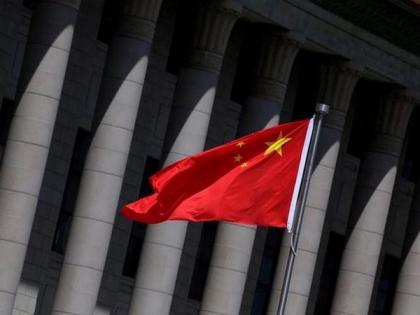China greatly fixated on an ancient kingdom known as "Zhangzhung": Report
By ANI | Published: December 23, 2022 12:33 PM2022-12-23T12:33:39+5:302022-12-23T18:05:02+5:30
China has been greatly fixated on an ancient kingdom known as "Zhangzhung". China has been carrying out research and ...

China greatly fixated on an ancient kingdom known as "Zhangzhung": Report
China has been greatly fixated on an ancient kingdom known as "Zhangzhung". China has been carrying out research and excavation related to Zhangzhung in Western Tibet, according to a report in The Diplomat.
Academics contest Zhangzhung's exact boundaries. Some say it comprised parts of what is now known as Ladakh, West Tibet, Nepal, and Gilgit-Baltistan. Others, however, argue that the kingdom only cut into the northwest edge of Nepal and a part of Ladakh.
"The lack of knowledge and certainty surrounding Zhangzhung make it ripe for exploitation and distortion. The importance of the kingdom is that it is tied to so many cultural and geostrategic dynamics China wants to manipulate today. Beijing is therefore actively creating historical revisionism through the sponsorship of archaeologists and historians to provide a new narrative of Zhangzhung in order to justify its territorial, cultural, and geopolitical control in the region," according to a report in The Diplomat.
If Zhangzhung is proven to be the source of Tibet and China lays claims to Zhangzhung, then the country will be able to justify its control of Tibet.
According to The Diplomat, for the Chinese Communist Party(CCP), this works both ways. By laying a claim on Tibet, China can also rationalize its ownership of Zhangzhung. That is, if Tibet is a part of China and has its roots in Zhangzhung, then Zhangzhung also belongs to China and so does every region the kingdom comprised including Nepal, India, and Pakistan.
According to a recent report in Border Lens, Amrita Jash, Assistant Professor at the Department of Geopolitics and International Relations at the Manipal Academy of Higher Education (MAHE) in Manipal said that China fails to realise that India actually manages Arunachal Pradesh legally while it merely claims it.
The report also states that: "China rejects the McMahon Line, the boundary between China and India, which it calls "illegal" and "unacceptable", for the following reasons: first, the Sino-Indian boundary has never been properly demarcated; no treaty or agreement has been made between the Chinese Central Government and the government of India."
Secondly, Beijing believes the McMahon Line to be an imperialist legacy.
What is interesting to note though is that in 1960, Beijing accepted the McMahon Line, which China adamantly condemns in the case of Arunachal Pradesh, in order to settle the border dispute with Myanmar.
Initially, China only laid claim to the Tawang region of Arunachal Pradesh. Since the 1980s, however, Beijing has started claiming all of Arunachal Pradesh as part of its 'South Tibet' territory.
( With inputs from ANI )
Disclaimer: This post has been auto-published from an agency feed without any modifications to the text and has not been reviewed by an editor
Open in app